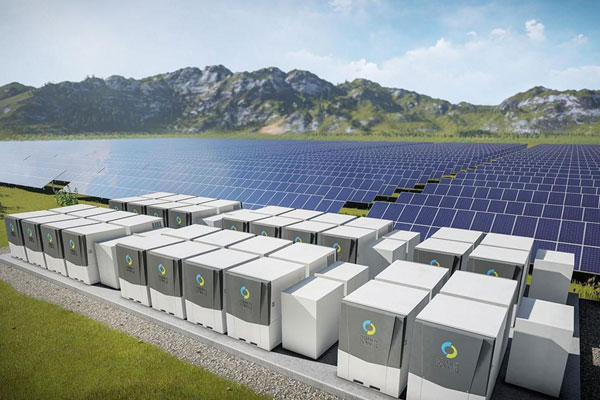The solar energy storage market is projected to surge to over $197.1 billion by 2032, reflecting a robust compound annual growth rate (CAGR) over the next decade, according to a report by Global Market Insights.
This surge is driven by technological advancements, policy support, and the increasing need for reliable and efficient energy storage solutions, stated the key industry expert.
Solar energy has long been recognized for its potential to provide clean and abundant power. However, one of its main challenges has been its intermittent nature - solar power generation is dependent on sunlight, which varies throughout the day and across seasons. This intermittency necessitates efficient storage solutions to ensure a stable and reliable power supply.
As the world continues to prioritise renewable energy sources, solar energy storage stands out as a key player in the sustainable energy landscape, it added.
These storage systems, which store excess solar power generated during peak sunlight hours for use during periods of low sunlight or high demand, have emerged as a critical component of modern energy infrastructure.
These systems help smooth out fluctuations in solar power generation, ensuring a consistent energy supply and enhancing the overall reliability of the grid, said the report by Global Market Insights.
Several factors are propelling the growth of the solar energy storage market:
*Technological Advancements: Innovations in battery technology, particularly in lithium-ion batteries, have significantly improved the efficiency, capacity, and lifespan of solar energy storage systems. Advances in other storage technologies, such as flow batteries and solid-state batteries, are also contributing to market growth.
*Government Policies and Incentives: Many governments worldwide are implementing policies and incentives to promote renewable energy and energy storage. Subsidies, tax credits, and favorable regulatory frameworks are encouraging both residential and commercial adoption of solar energy storage systems.
*Declining Costs: The cost of solar panels and energy storage systems has been steadily decreasing, making solar energy more accessible and affordable. This trend is expected to continue, further driving market adoption.
*Increased Demand for Renewable Energy: As global awareness of climate change and environmental sustainability grows, there is a rising demand for renewable energy sources. Solar energy, with its abundant availability and decreasing costs, is becoming a preferred choice for many consumers and businesses.
The solar energy storage market is segmented based on technology, application, and region:
•By Technology: The market includes lithium-ion batteries, lead-acid batteries, flow batteries, and others. Lithium-ion batteries currently dominate the market due to their high energy density, long cycle life, and decreasing costs.
•By Application: The market is divided into residential, commercial, and utility-scale applications. The residential segment is experiencing significant growth due to increasing consumer awareness and government incentives for home solar systems.
•By Region: North America, Europe, Asia-Pacific, and the Rest of the World. Asia-Pacific is anticipated to witness substantial growth, driven by large-scale solar projects and favorable government policies in countries like China and India.
On the future outlook, the expert said that the solar energy storage market prospects looks promising, with several trends expected to shape its trajectory. These include:
*Integration with Smart Grids: The integration of solar energy storage systems with smart grid technology will enhance grid stability and efficiency, enabling better management of energy supply and demand.
*Rise of Electric Vehicles (EVs): The growing adoption of EVs is creating new opportunities for solar energy storage. EVs can serve as mobile energy storage units, providing additional flexibility and capacity to the grid.
*Decentralized Energy Systems: The shift towards decentralized energy systems, where power is generated and consumed locally, is driving the adoption of residential and community-based solar energy storage solutions.-TradeArabia News Service































